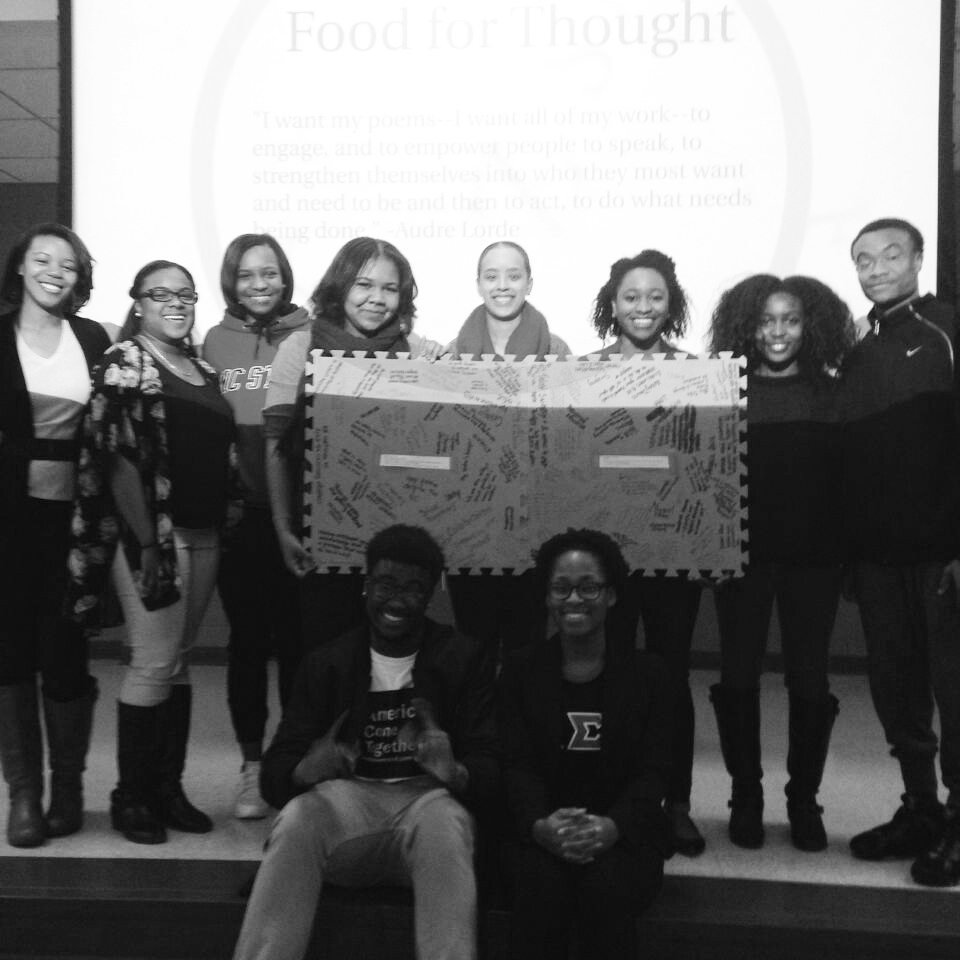Anahsza Jones | Managing Editor
College is hard enough, between classes, homework and just navigating around the campus. Thankfully, NC State has several resources to make the college journey as smooth of a ride as possible. Here are the top seven people and places both new and old students can use to make their college experience a success.
1. Academic Advisor
An academic advisor is the number one person to go to with any questions or concerns about classes, drop dates, credits, and what students should or shouldn’t be taking in order to get where they want to go in their academic career. An advisor’s job is to help students succeed, and because they are appointed within the colleges, they know exactly how to do that. Students can develop a meaningful one on one relationship with their advisors, who can then help tailor make their academic experience to help them on the road to success. It’s highly recommended that students meet with their advisor a couple times through the semester, and be open and honest with them.
2.Career Development Center
While academic advisors can help students decide what classes to take, a career development counselor can guide them towards their career goals. From helping find activities on campus that can enhance skill sets to going over resumes and cover letters, the counselors will do everything they can to help students succeed. The Career Development Center also offers workshops and seminars focusing on different career building skills, such as interviews and resume writing. There are also the many career fairs that happen on campus that are coordinated by the CDC. For more information, visit the office in Pullen Hall, or call them at (919)515-2396.
3. University Tutorial Center
Classes can get difficult quickly, so it is best to be open to tutoring. The University Tutorial Center is located in Park Shops, right behind Port City Java, and a great place to get help for difficult classes. It’s best to start early. To utilize the tutoring program, new students have to submit an application and attend an orientation. Tutoring can happen in two ways, weekly assigned tutoring, where students work with a tutor on a regular basis to keep them on track, or sign up tutoring, when they make appointments as needed. Students, new or old, shouldn’t wait for chemistry or physics to get hard before they seek assistance. The staff is friendly, and the tutors are accomplished students who know exactly what their peers are going through. For more information, visit the center’s website https://tutorial.dasa.ncsu.edu/, or call (919)515-3163.
4. Financial Aid Advisor
Another important advisor to know is a financial aid advisor. Students to whom this applies should make sure they know the name of their specific financial aid advisor and the best way to get in touch with them. When it comes to paying for school, it’s best to know exactly what one is doing and when they should be doing it at all times. The process can be confusing, and most don’t understand why half of it has to get done. Between verification forms and priority deadlines, the experience can get harrowing, but having an advisor who knows the process backwards and forwards makes it much easier. Students can find out who their advisor is on the NCSU office of financial aid and scholarships website and contact them directly, contact the office via phone, (919)515-2421 or email financialaid@ncsu.edu.
5. Resident Advisor/Director
For those students living in dorms, knowing their resident director and advisors makes on-campus living a better, more inclusive experience. These are the people that organize and coordinate activities like movie nights and game nights for the residents. They’re also the ones to go to if students are having troubles with other residents. While learning interpersonal skills is important, having a third party mediator can make settling disputes much easier. RA’s are fellow students, so they know the struggles their residents are facing and can be great for giving advice and talking through situations with. Students meet their RA on move in day and are given their contact information so they are always available.
6. Teacher Assistant
Another important, yet underutilized, resource is teaching assistants. Most first year classes have an upperclassman or graduate student assisting the professor with labs and grading. Like professors, teaching assistants often have office hours and are available for questions about assignments and tests. Students should get to know their TAs early in the semester to take full advantage of things like study tips. Most professors will provide contact information for their TAs on the syllabus or in class on the first day. If not, then students can ask their professors directly.
7. CSLEPS
Want to make a difference in your community or build your leadership skill set? The Center for Student Leadership, Ethics, and Public Service (CSLEPS) offers service opportunities and leadership development workshops to NC State students. For students interested in doing service project during school breaks, CSLEPS offers domestic and international alternative service breaks. In addition to hosting several service opportunities, CSLEPS can also connect students with local organizations that match their interests. Participating in CSLEPS programs enables student to grow both personally and professionally while meeting other students with similar passions and interests. For more information, visit CSLEPS in Talley Student Union on the fourth floor or visit their website at https://csleps.dasa.ncsu.edu.
These are just some of the resources available to help NC State students thrive. They serve as a great starting point for students to build their support network away from home.



